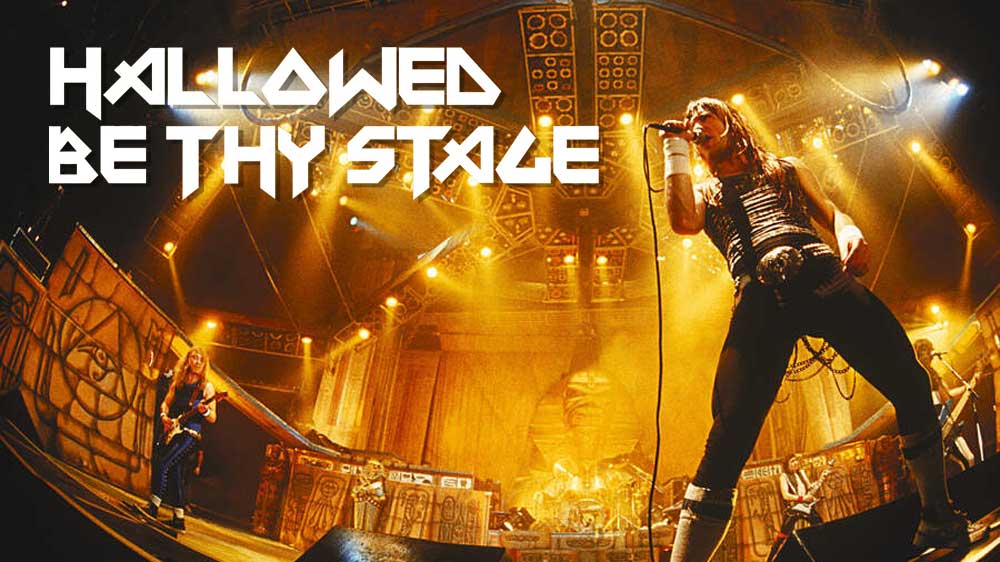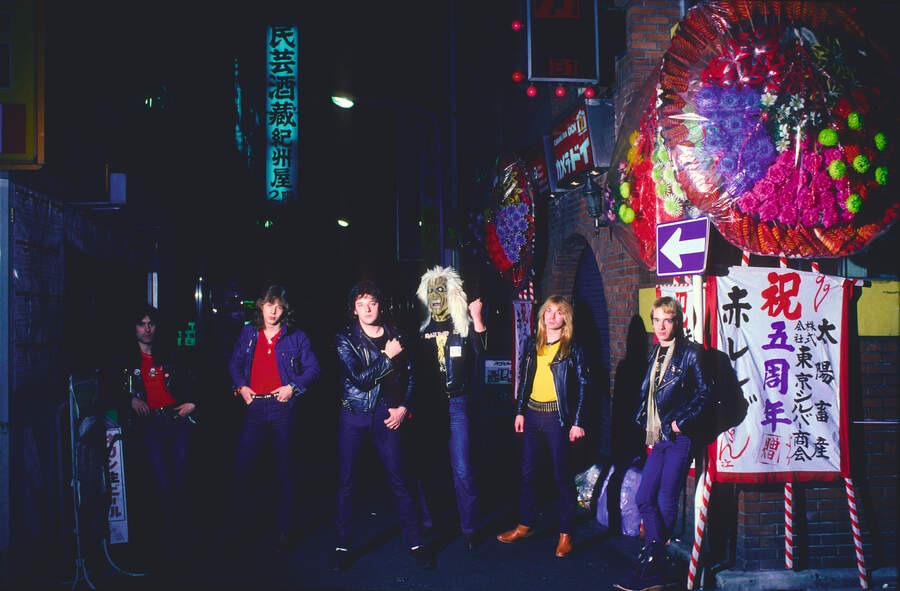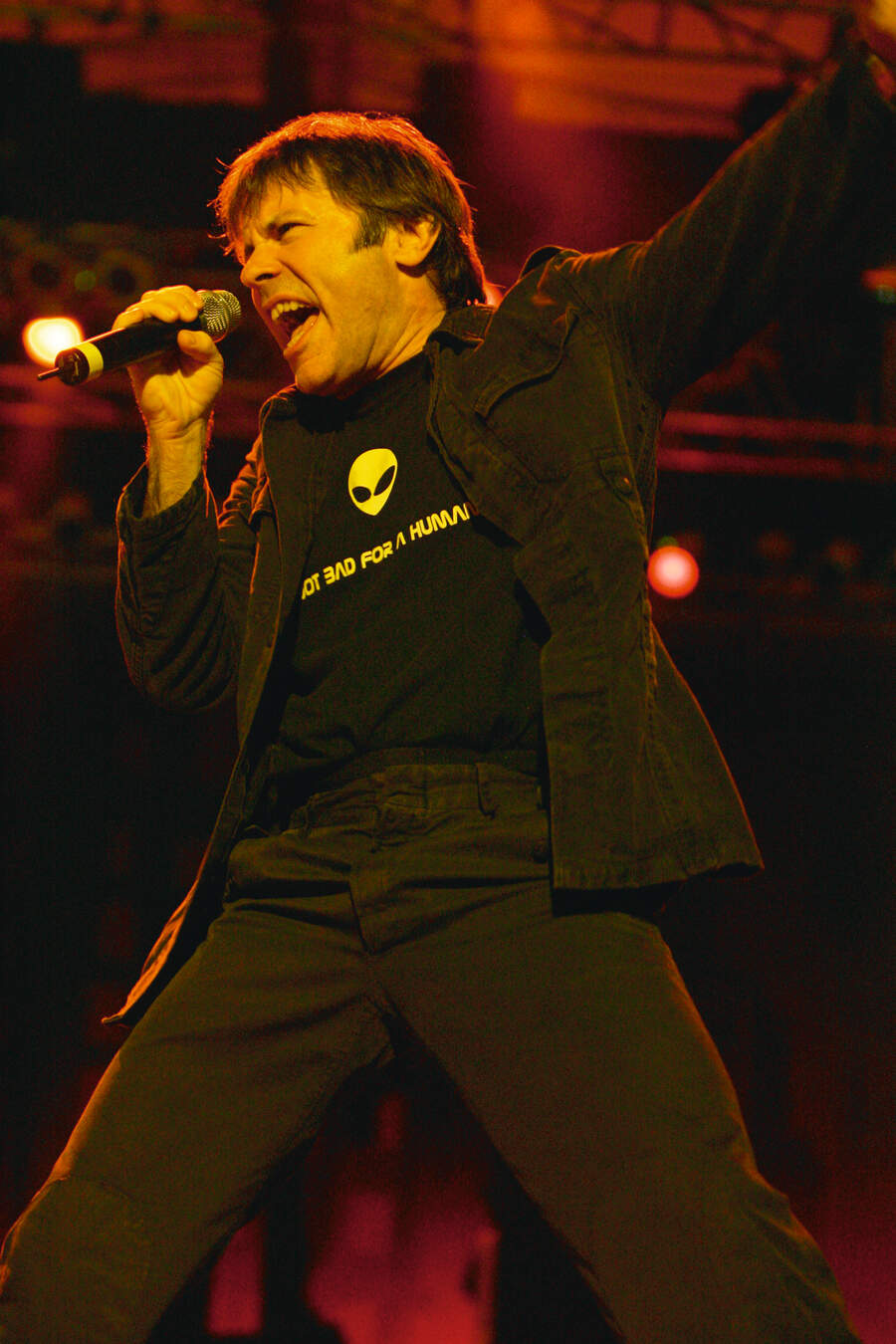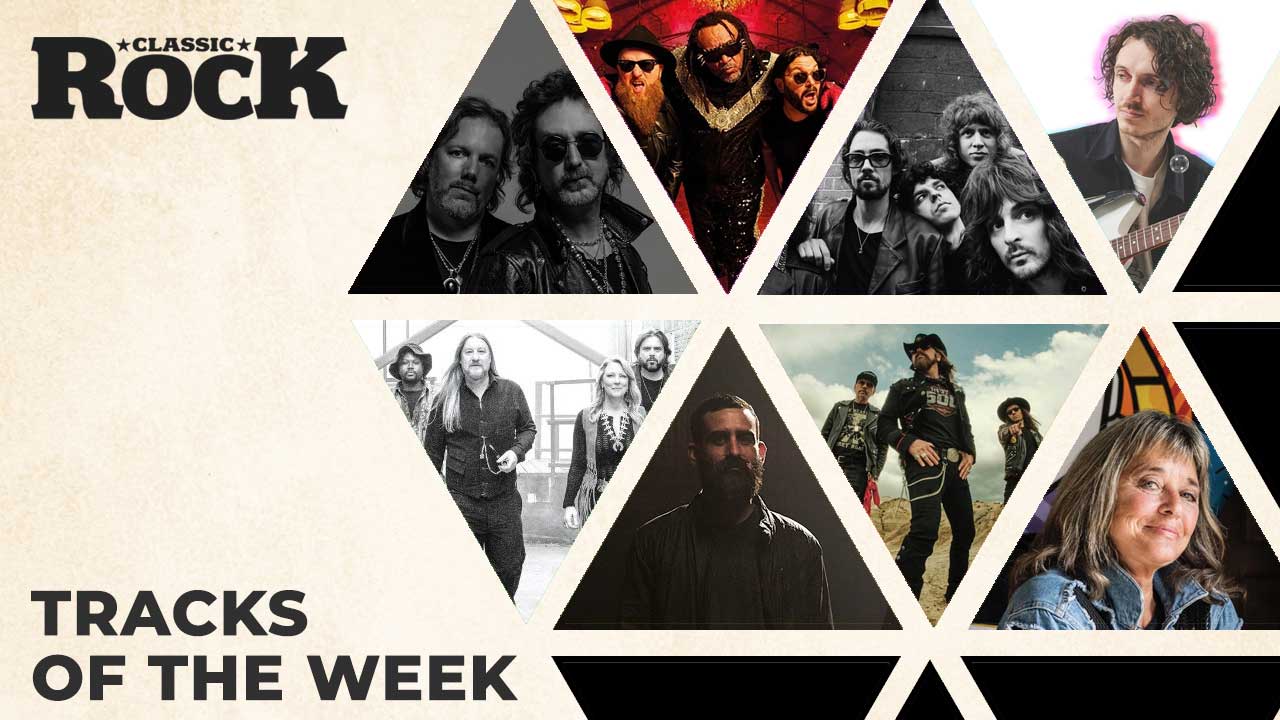The 10 most important and interesting Iron Maiden shows ever, by manager Rod Smallwood
Iron Maiden's longtime manager Rod Smallwood tells ten stories of ten landmark shows

As manager of Iron Maiden for 45 years, Rod Smallwood has seen the band play live hundreds upon hundreds of times. That number will increase by the dozen as Maiden celebrate their 50th anniversary with the Run For Your Lives tour – their first with new drummer Simon Dawson in place of the long-serving Nicko McBrain.
“Maiden want to tour every year,” Smallwood says. “It’s not me cracking the whip and saying: ‘You’ve got to keep working,’ it’s the guys. They genuinely love touring.”
There have been many changes along the way. The band have been fronted by three different singers: Paul Di’Anno, Bruce Dickinson and Blaze Bayley. But the very first time Smallwood saw them, bassist Steve Harris had to sing because Di’Anno, the young rascal, had been nicked. That infamous gig, in a London boozer back in 1979, is where Smallwood begins as he tells gives us his Top 10 landmark Iron Maiden shows from across the years.
“These aren’t necessarily the best gigs,” he explains. “But to me they’re the most important and interesting. And in every case they’re teaching us something.”

The Swan, Hammersmith, London, UK. July 1979
This was the first show I ever saw by Maiden, and they had to play without Paul [Di’Anno, vocalist] because he’d been arrested for carrying a flickknife. Even though I wasn’t managing the band then, I went into management mode and called the cop station, but they wouldn’t let Paul out. So it was just three of them: Steve [Harris, bass], Dave [Murray, guitar] and the original drummer, Dougie Sampson.
I said to Steve: “Do you know the words to the songs?” He said: “Yeah, I wrote them.” I said: “Can you sing?” He said: “Not very well.” “Can you try?” “Yeah, fine.”
The Swan was an old pub on Hammersmith roundabout. Bands played in this tiny room in the back. About thirty people were in there that night. I can still see it now in my mind’s eye…
Sign up below to get the latest from Classic Rock, plus exclusive special offers, direct to your inbox!
Steve sang pretty well. And as soon as they played Phantom Of The Opera I just knew they were going to be enormous. I just thought it was an incredible track.
Even without their frontman, the band had real charisma with Steve and Dave. The way they looked the audience in the eye was the key factor.
I didn’t actually agree to manage them for months after that, because I thought I was probably going back to college to study law. But deep down I knew the band was something special.
Koseo Nenkin Hall, Tokyo, Japan. May 21, 1981
We actually toured Japan before America. Metal is a worldwide thing and I always wanted Maiden to be a hugely successful international band. I wanted parallel development across the world.
We loved Japan. It was such a different culture to experience. And one of the weirdest things for us was how the audiences were all seated. If a fan got too excited and stood up, a security guy would bang them on the head with rolled up newspapers. So the fan would sit down, but then another would stand up somewhere else, and then – bang! – they’d sit down. It was like Whac-a-Mole. Quite extraordinary.

Coliseum, Seattle, Washington, USA. June 28, 1983
It was our first sell out arena show in America. By this time, we’d sold 380,000 albums there. I remember the exact figure. We’d done all of these support tours and now it was time to headline. So do we do theatres or do we go for arenas? If I knew then what I know now, then there’s no way I’d have done arenas. I mean, platinum albums don’t always sell out arenas. So I like to think it was inspiration, but looking back it was more fucking madness that worked.
Seattle was the sixth show on that tour. Sold out, 13,000 people. And believe me, I was very, very grateful.
On that same tour we also sold out Madison Square Garden [in New York]. We rode to the venue in stretch limos, and I’ll never forget that feeling of: “Fucking great, we’ve done it!”
People's Hall, Wrocław, Poland. August 12, 1984
In the early 80s, Poland was behind the Iron Curtain, very much under Russian control. The audience reaction we got there was magical. If you’re deprived of live music, seeing a full-on arena show was a whole new world for those fans.
What I remember in particular was walking to the show from the hotel and having a feeling of foreboding. I couldn’t quite understand it. When I got inside the hall, I realised this was where they used to hold Nazi meetings. At the top of the cupola, the dome, there was a massive keystone which was covered in a tarpaulin.
I found out later that it was covering a huge swastika. And all along the back of the stage there were the little eye holes where the SS would look for people who weren’t reacting appropriately and then drag them out. It was one of those times in your life when you feel the past and the present coming together.
Rock In Rio, Rio De Janeiro, Brazil. January 11, 1985
As a one-off gig, the impact of Rock In Rio was monumental. We had no history at all in South America before then. We played before Queen, and the audience was reportedly 300,000 – but it could have been more. And it was broadcast live on TV. Not just in Brazil, but across all of South America.
The sound was pretty bad on stage. Bruce [Dickinson] got so frustrated that he kicked off some of the monitors. And that’s when he ran into a guitar head and cut himself. The blood was streaming down his face. I was on the side of the stage, and Bruce came over to me. I said: “See the camera over there with a red light on? Go and get your head right in front of it!” Bruce tells a different version of that story where I sent a roadie up to him to tell him to make the wound a bit wider so he bled more!
The sight of Bruce’s bloody face had a huge impact. After that one show, we were playing to a minimum of 40,000 people a night in South America – forever, effectively. So it’s one of the most important shows we ever did.
Monsters Of Rock, Donington Park, UK. August 22, 1988
We did a lot of things very differently to the majority of bands, and a lot of it was based on gut instinct. That’s why we never played Monsters Of Rock until 1988. I thought: “We’ll wait until we fucking headline it, and make a statement.”
By the day before the show we’d sold 75,000 tickets – which was about the same as the record for Monsters Of Rock set by AC/DC – and then 30,000 people walked up on the day. It was unbelievable. 110,000 people there. In the end they ran out of official tickets so they ended up using raffle tickets to let more people in.
Sing Sing, Jerusalem, Israel. September 28, 1995
When Blaze [Bayley] came into the band and we were planning touring, I wanted to start somewhere where we wouldn’t really get any media – to give Blaze a good shot at doing a few shows before you’re subjected to the opinions of the critics. So we did Jerusalem and two other shows in Israel, and then we did three shows in South Africa, about as far away as you can get.
The club in Jerusalem was small. Maybe 600 people were in there. To hear The Number Of The Beast in Jerusalem, it was really quite eerie. It was clear to me that it was working with Blaze. It wasn’t the same, obviously, but the shows went very well. There was never any talk of the band splitting when Bruce left. Maiden will always carry on.
Palais Des Omnisport De Paris/Bercy, Paris, France. September 9, 1999
When Bruce and Adrian [Smith, guitarist] came back we did some small shows in America just to test the water, but the Paris show was a real milestone – 15,000 people, sold out.
It was a great show, but there was something else that was significant. Steve Lazarus was running the fan club at the time, and on the morning of the show he told me he was meeting a lot of fans at the Eiffel Tower. He said the fans had organised the meeting online.
So I went with him, and there were 1500 fans from all over the world, gathered around the base of the Eiffel Tower. And it’s when it really came home to me – the value of social media. We’d always been a band that developed through word of mouth, and our social media took that to a whole new level.
Desert Rock Festival, Dubai, United Arab Emirates. March 9, 2007
It was a festival right at the edge of the desert. The Prodigy were our special guests. They were amazing. And the audience came from all over the Middle East; you saw hijabs and Iron Maiden T-shirts. Music actually is important, and this was one of those moments when you realised how true that is. There was a phenomenal feeling of positivity around this show. It was very touching to see people from disparate regions, all together – united by metal.

Sambodromo, Manaus, Brazil. March 12, 2009
It was the first tour with the plane, the [Boeing] 707. And the show in Manaus was a great example of how, with the plane, we were able to get to parts of the world which you just wouldn’t get to otherwise, because of the sheer cost of freights and things.
Maiden have always taken their whole show everywhere. It’s something we’ve always done. We don’t think it’s fair on fans in Santiago or Melbourne to not get the same shows as in London or Paris, but it means the costs are prohibitive at times.
Manaus is at the foot of the Andes, the far west of the Amazon, and we had 25,000 people there to see the show.
Like I said earlier, I always wanted Maiden to be an internationally successful band. And what better way to prove it than playing to twenty-five thousand in the middle of the fucking Amazon rainforest!
Freelance writer for Classic Rock since 2005, Paul Elliott has worked for leading music titles since 1985, including Sounds, Kerrang!, MOJO and Q. He is the author of several books including the first biography of Guns N’ Roses and the autobiography of bodyguard-to-the-stars Danny Francis. He has written liner notes for classic album reissues by artists such as Def Leppard, Thin Lizzy and Kiss, and currently works as content editor for Total Guitar. He lives in Bath - of which David Coverdale recently said: “How very Roman of you!”
You must confirm your public display name before commenting
Please logout and then login again, you will then be prompted to enter your display name.
![Iron Maiden - Revelations - Rock In Rio 1985 [Remastered In 4k60fps] - YouTube](https://img.youtube.com/vi/lWUCOEKWW-8/maxresdefault.jpg)

